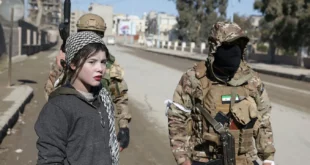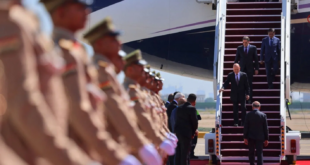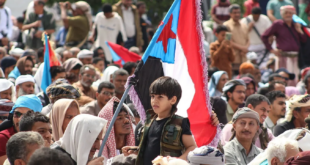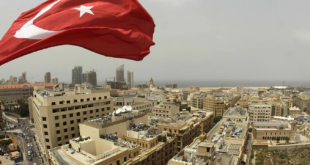The problems faced by governments in the West dealing with returning foreign fighters have been revealed in the case of an alleged British extremist who snubbed de-radicalisation efforts to play chess with a government-assigned mentor.
The married father-of-three, identified as QX, was banned from the UK for two years in November 2018 because of the risk he posed to national security after he travelled to Syria and joined an Al Qaeda-linked group, according to court documents.
QX, described by the government as a “significant terrorism-related risk”, was arrested in Istanbul and deported to the UK in 2019.
The government, which had to accept the return of QX despite the ban, told him to report every day to a police station as part of conditions imposed on him to ensure that he did not pose a continued threat.
Details of QX’s case emerged after he went to court to try to have some of the conditions lifted, saying they affected his rights under human rights law to a private and family life.
The programme included a two-hour session with a mentor from the government’s Desistance and Disengagement Programme (DDP) and one with a theologian on alternate weeks.
The programme has proved controversial. It was attended by terrorist Usman Khan before he launched a murderous attack close to London Bridge in December last year, less than a year after his release from prison for plotting terrorist attacks.
QX claimed the sessions served no “useful purpose” and barely took part, saying he feared information he passed on would be used against him during a criminal investigation, the UK’s High Court was told. He faces criminal charges over three alleged breaches of the order, the court was told.
“From March 2019, he spent the mentoring appointments playing chess with the mentor and engaging in minimal conversation,” court documents said.
“The appointments then moved to a library. Since then, he has spent the time reading a book which he brings with him.
“He has never engaged with the theologian: He reads a book during each session.”
The UK government applied for a temporary exclusion order (TEO) in 2018 after QX was assessed to have travelled to Syria and “aligned with a group that is aligned to Al Qaeda” and showed a strong commitment to its ideology.
The government assessment said that “QX poses a significant terrorism-related risk to members of the public”.
“An individual aligning with an Al Qaeda-aligned group will be subject to radicalisation and desensitised to violence, so this ideological commitment is likely to remain, or even grow stronger,” the government said.
It said that the threat included carrying out “violent attacks”, recruiting UK operatives or providing support to Al Qaeda.
The 2015 law which introduced the exclusion orders allowed for the return of the banned individual in a few narrow circumstances, including deportation.
Part of the case was held behind closed doors on national security grounds, with QX also not allowed to know the details.
Judge Justice Judith Farbey said that the “combination of obligations in this particular case amounts to an interference with QX’s right to respect for private life”.
QX was successful in being able to secure information from the closed hearings to challenge the conditions at a later hearing.
A Home Office spokesperson said: “We do not routinely comment on individual cases.”
The case came as the Irish government was expected to oppose attempts to secure a passport for the seven-year-old son of a suspected ISIS fighter.
The boy is in Belarus with his mother after being deported from Turkey. The whereabouts of his father – from Belarus but a naturalised Irishman through a first marriage – are unknown, according to The Irish Times. The government is seeking to revoke his citizenship.
The boy and his mother want to travel to Ireland because of concerns about the government of Belarus’s response to the Covid-19 crisis.
 Eurasia Press & News
Eurasia Press & News



